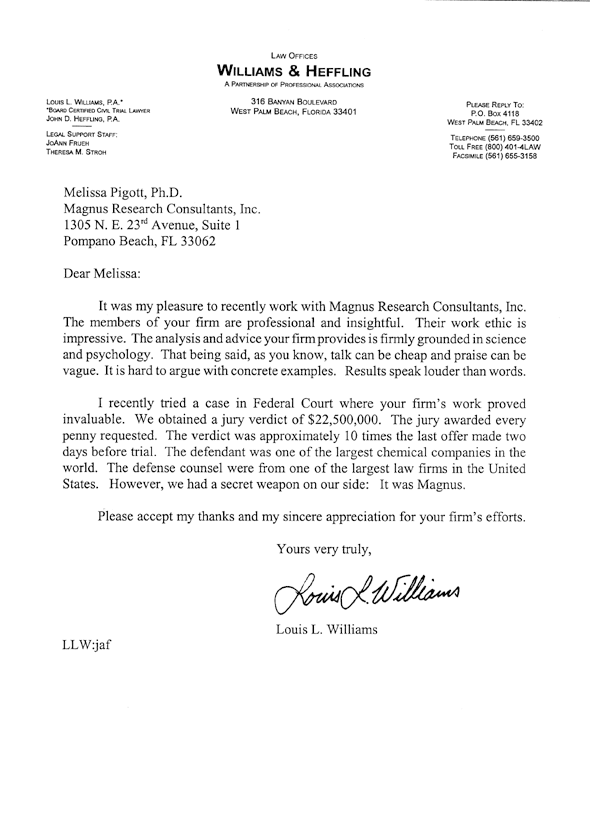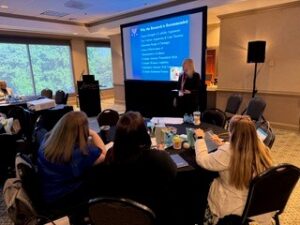My name is Louis Williams and I’ve been a trial lawyer for 33 years, and I’ve been a board-certified civil trial lawyer for approximately 25 of those years. I’m also now a full-time circuit civil mediator. I first used Magnus’ services back in 2003, and used them continuously over the years until I retired last year.
In our case, I first met with the Magnus team so we could plan how we were going to do the focus group and how we were going to then later do mock juries. Everything is science-based. They take the time to actually plan out, in detail, what they’re going to do, and explain every step of the way as you prepare, and as you actually do the focus group and do the mock jury. Then, afterwards, in the report, they spend a significant amount of time going over it with you so that you understand the science-based findings and the recommendations, and what you need to do both in jury selection and in the presentation of your evidence. I highly recommend it in any case where there is any complexity at all, and you might have difficulty making a jury understand the case.
I’ve also used them on another case where I obtained a confidential settlement from a different company which was larger than the jury verdict. I’ve used them in defense of a case where the last pretrial demand was $46 million. In the defense of the case, by the time we were done, the jury awarded $1.6 million with a $1 million set off. So that it was well worth it on both sides, whether it’s plaintiff or defense, to use Magnus’ scientific-based approach to jury selection and trial consulting.
After a trial career of 33 years both on the plaintiff side and the defense side, I’m now a full-time mediator and have been for the last approximately one year. I can also tell you that Magnus’ services could definitely be used, and would be well worth it, in a lot of cases that go to mediation. It is surprising how many people appear at mediation without full preparation, without knowing what’s going to be persuasive to the opposing counsel, what’s going to be persuasive to the opposing lawyer, and not having a fund of information about what a jury is likely to do in the case. Which, of course, is going to be tremendously helpful in your ability to value the case and persuade your opponent that your take on the case is accurate.



